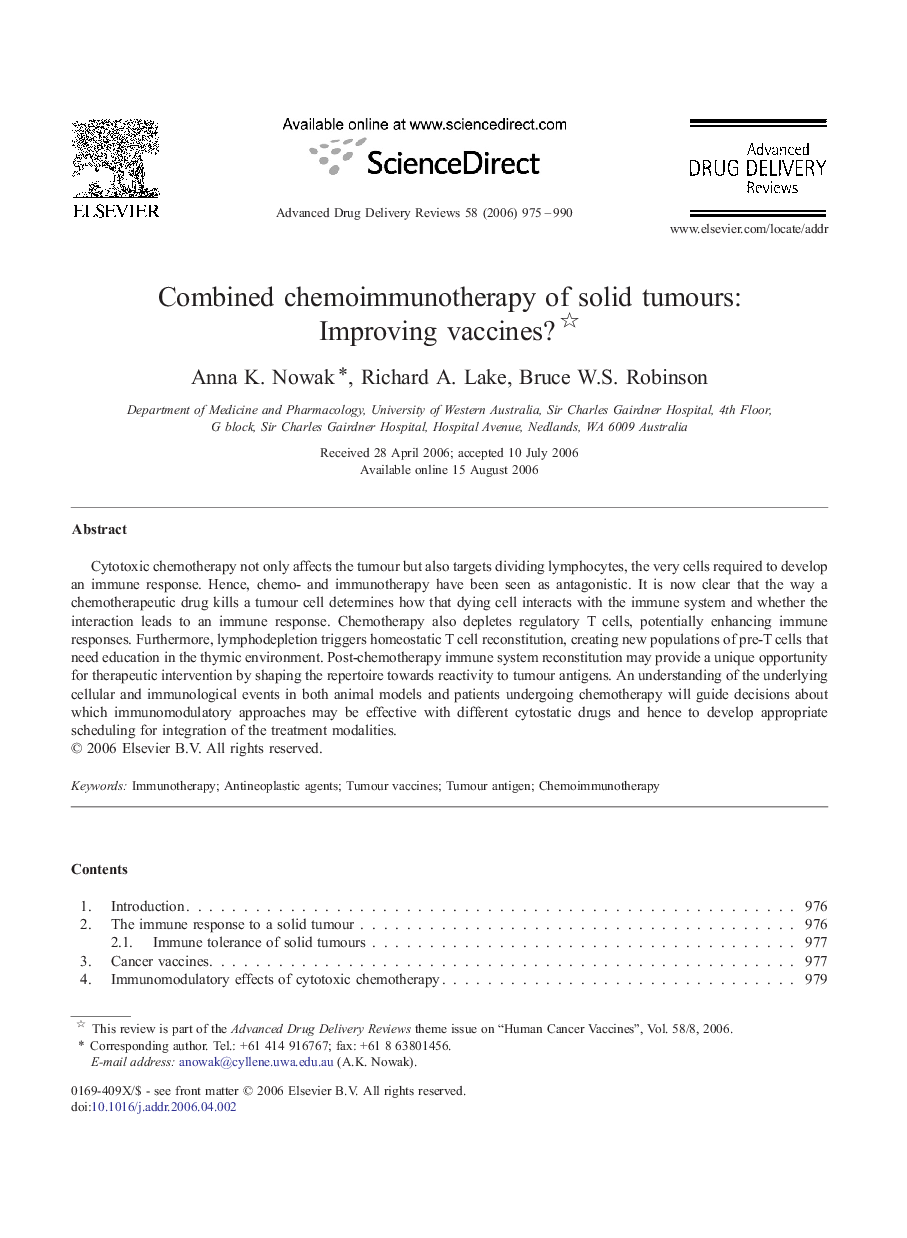| Article ID | Journal | Published Year | Pages | File Type |
|---|---|---|---|---|
| 2071984 | Advanced Drug Delivery Reviews | 2006 | 16 Pages |
Cytotoxic chemotherapy not only affects the tumour but also targets dividing lymphocytes, the very cells required to develop an immune response. Hence, chemo- and immunotherapy have been seen as antagonistic. It is now clear that the way a chemotherapeutic drug kills a tumour cell determines how that dying cell interacts with the immune system and whether the interaction leads to an immune response. Chemotherapy also depletes regulatory T cells, potentially enhancing immune responses. Furthermore, lymphodepletion triggers homeostatic T cell reconstitution, creating new populations of pre-T cells that need education in the thymic environment. Post-chemotherapy immune system reconstitution may provide a unique opportunity for therapeutic intervention by shaping the repertoire towards reactivity to tumour antigens. An understanding of the underlying cellular and immunological events in both animal models and patients undergoing chemotherapy will guide decisions about which immunomodulatory approaches may be effective with different cytostatic drugs and hence to develop appropriate scheduling for integration of the treatment modalities.
